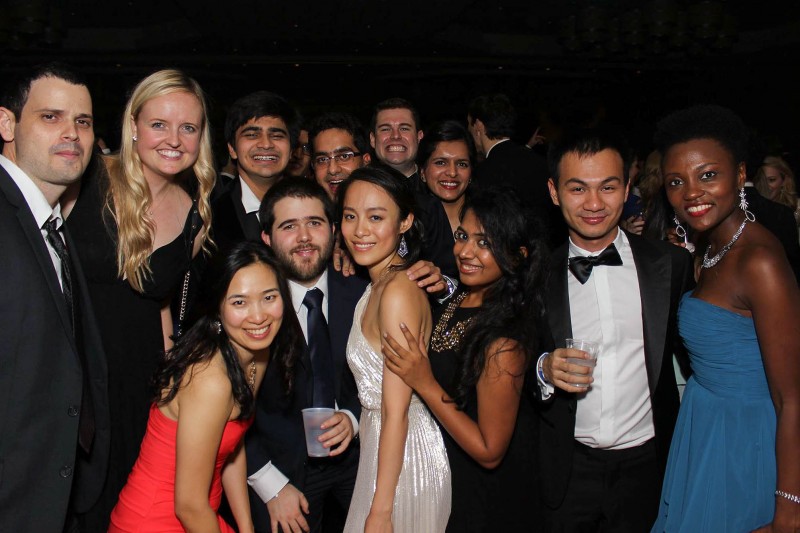Dara Veung thought he knew what studying in the U.S. would be like before he even left Cambodia: “A very happy life with a lot of parties and a lot of friends.”
America, he had reasoned, would be “like New York—the New York in the movies.”
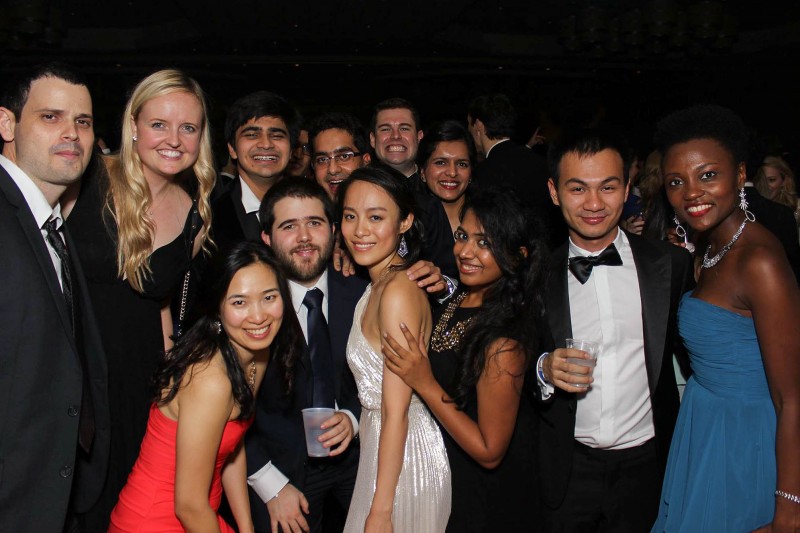
Then, in the autumn of 2008, he arrived in the “Jewel of the Prairie”: Grinnell, Iowa, a town of roughly 9,000 people where the Iowa Transportation Museum is a headline attraction and the 2010 U.S. census counted 246 Asians.
For Mr. Veung, who had worked tirelessly to win a scholarship to Grinnell College, Iowa was a long way from his family home in Kampong Cham province.
“Frankly, I was disappointed at first,” said Mr. Veung, now a 27-year-old business development manager for Smart Axiata while on leave from Harvard’s MBA program, in an interview last week. “But as an Asian who values education a lot, I think the rural location helped.”
Every year, thousands of Cambodians like Mr. Veung pack their bags and leave the country for an undergraduate or graduate education overseas. They’re looking for new friends, new food, a new perspective—and a quality of education that no amount of money can buy in Cambodia.
Prime Minister Hun Sen has repeatedly disputed this contention. During a graduation ceremony at the National Institute of Education in Phnom Phnom on Thursday, he again lashed out at opposition leader Sam Rainsy for describing degrees from Cambodian universities as “worthless” in a speech last year.
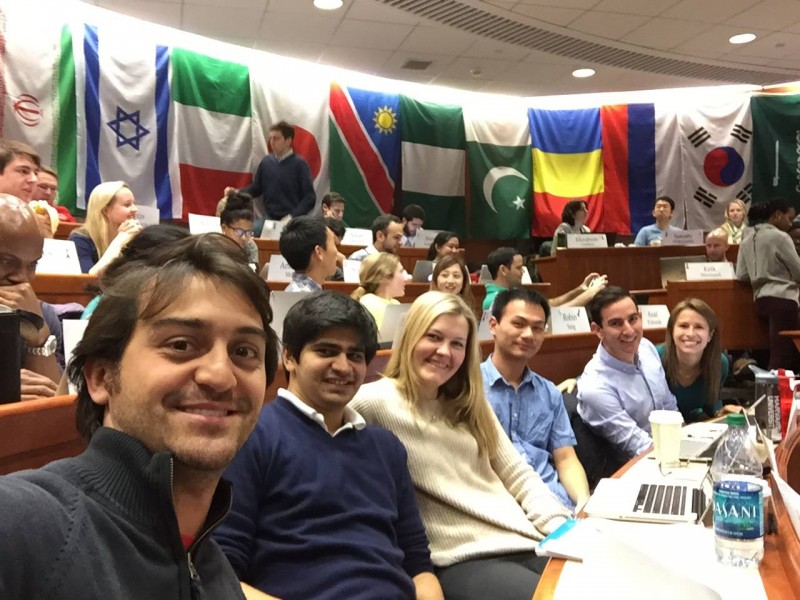
“We just want to remind every student studying in the country, and those who do not go to study abroad, to use the pain coming from some politicians’ disdainful words to motivate and strengthen their capacities,” he said.
But the prime minister is surrounded by the products of an overseas education. His eldest son, Hun Manet, received a bachelor’s degree from the United States Military Academy at West Point and a doctorate in economics from the University of Bristol in the U.K. Environment Minister Say Samal is a graduate of Australia’s Monash University and Transport Minister Sun Chanthol is alumnus of both American University in Washington and Harvard.
Education Ministry spokesman Ros Salin described his master’s program at the University of Lyon in glowing terms. “In classwork, we had a chance to group with students from France, Latin America, Africa…. It was a very good experience.”
Mr. Salin said the ministry’s Cambodia Higher Education Vision 2030 plan will revise university curriculums, increase research and collaboration with Western universities, and invest in science and engineering tracks to address what the plan calls “an alarming mismatch between education and employment” for the country’s more than 200,000 higher-education students.
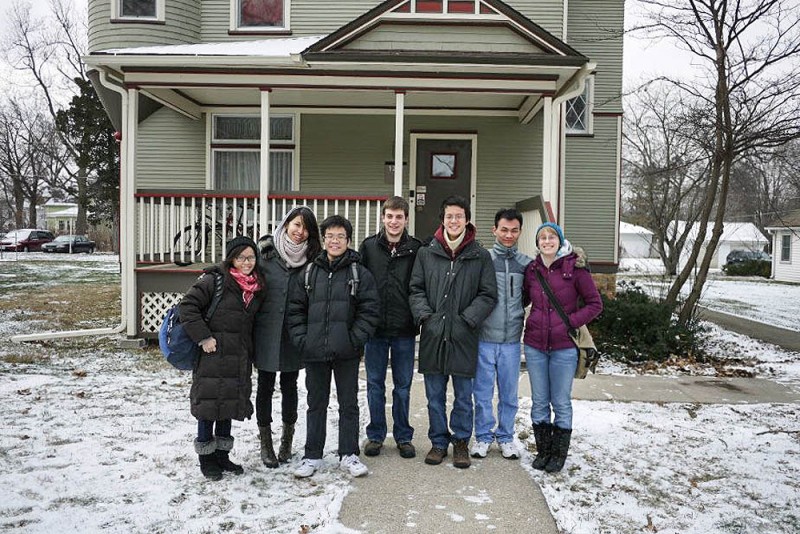
In the meantime, students who can afford it continue to study abroad.
For those with particularly deep pockets, the clearest path overseas is through one of Cambodia’s international schools. At the International School of Phnom Penh (ISPP)—arg-uably the most prestigious primary and secondary school in the country, and one of the most expensive—95 percent of students in grades 11 and 12 enroll in the International Baccalaureate (IB) Diploma Program, which is recognized by thousands of universities worldwide, according to ISPP communications manager Lindy Leonhardt.
Ms. Leonhardt said the school’s mix of expatriate and Cambodian students who complete the IB program are well positioned to leave the country for university.
“Typically, 100 percent of our Diploma Programme graduates will go on to higher education and study abroad,” she wrote in an email. “The top destinations for our students are universities in the US, UK, Australia and Canada.”
For those without the means to afford ISPP’s annual tuition of $22,210 for 11th and 12th grade students, Mr. Veung’s path is an example of one back-breaking alternative.
Born into a fishing family in Kampong Cham province, Mr. Veung’s parents sent him to Phnom Penh as a 12-year-old to attend the state-run Bak Touk High School.
The city presented his first dose of culture shock. He was packed into a house with distant relatives, then into a cramped apartment building housing mostly garment workers.
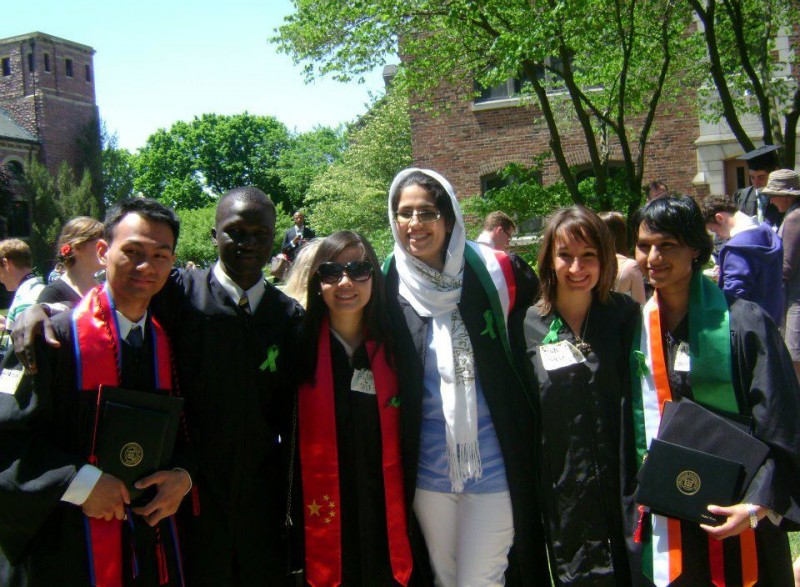
School was also overwhelming. “I’d never seen such a big building before,” Mr. Veung said. He eventually made friends, but even they mocked his provincial twang—“which was OK, because at this point I was already used to being made fun of.”
Like many Cambodian secondary schools, Bak Touk operated in two shifts: an official, four-hour public session, and a series of informal classes lasting up to seven hours for which students paid teachers for supplemental tutoring.
“It’s a…requirement of teachers—otherwise you don’t know what’s going to be on the exams,” said Mr. Veung. “I would sleep four to five hours a day.”
Mr. Veung attributed his scholarship to Grinnell to a strong work ethic, fluency in English and an understanding of the U.S. college application process. Many other students “don’t know about the requirements, and by the time they know, it’s too late.”
Though admittance to U.S. universities are particularly coveted, a myriad of barriers—scarce scholarship offerings, a reluctance among U.S. banks to give loans to potential flight risks, unique entrance requirements—often see less wealthy students sent off to the U.K., Australia and other parts of Asia.
For 26-year-old Sokry Boramy, enrolling in China’s Hunan University for a master’s in applied economics made sense, given her Sino-Cambodian ancestry and desire to receive an education that was better than that available in Cambodia at the time.
“I thought I was going to have an amazing adventure in a foreign land and I had indeed,” Ms. Boramy wrote in an email. Living in the international dormitory, “we held a lot of parties during holidays for each country.”
Ratanak Leng, a 30-year-old employee of an embassy in Phnom Penh that he declined to identify, said his time studying with a full scholarship to South Korea’s Kyung Hee University did not cause him to fall in love with Korean culture, but did “allow me to love my own country more.”
Mr. Leng said he developed a complex relationship with what he described as South Korea’s more rigid and communal values during his time studying for a master’s in political science.
“The status of Cambodian in Korean society, we are a poor labor from Southeast Asia,” Mr. Leng wrote in an email. “Sometimes, my Korean friends were trying to convert me into Christian because they think I am from poor country so [that] God will be the new source of my inspiration in life but they failed many times.”
At the same time, Mr. Leng admired Koreans’ “culture of sharing and caring” and work ethic, and said that many of his Cambodian peers “really love Korea in general” because it compares favorably to a “disturbed, unhealthy” system of governance and education in Cambodia.
Mr. Leng took home a degree he felt had less cachet than one from the U.S., but also a renewed sense of optimism and urgency about Cambodia’s future.
“However,” he wrote, “it is the biggest challenges for the next generation of Cambodia like to keep hope alive and keep fighting a better Cambodia.”
(Additional reporting by Kuch Naren)
Correction: A previous version of this article incorrectly identified Transport Minister Sun Chanthol as the commerce minister, his previous position.

